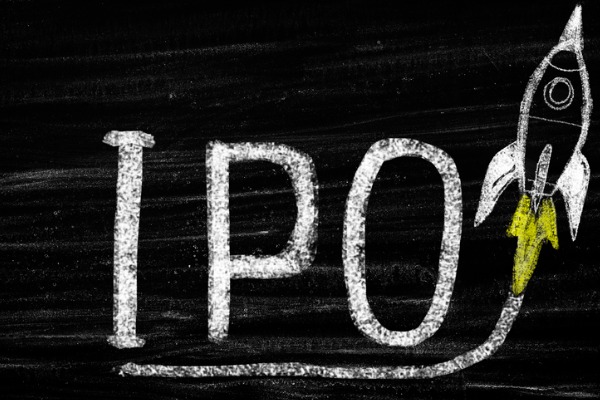The IPO market in 2021 so far: winners and losers
30th June 2021 10:03
by Graeme Evans from interactive investor
With the global IPO market experiencing a boom period, we look at the highlights and lowlights of 2021 so far.

It's been a frantic year for new companies joining the London stock market after debuts by Deliveroo (LSE:ROO), Dr Martens (LSE:DOCS), Moonpig (LSE:MOON) and Auction Technology Group (LSE:ATG) among many others.
Through these initial public offerings (IPOs), more money has been raised by newly listed companies in 2021 than was managed across all of 2018 and 2019, buoyed by the removal of Brexit uncertainty and the easing of pandemic restrictions.
The majority of the debutants have generated nice profits for their new shareholders, with broker Liberum reporting an average return of 20% for the class of 2021 in the first five months of the year.
There have been some stunning success stories, not least the online auction business Auction Technology Group. The company, whose Saleroom technology features on BBC's Bargain Hunt, is now in the FTSE 250 index after doubling in value from 600p a share in its February IPO.
Cyber security firm Darktrace (LSE:DARK) is another stock twice its original size, having initially been valued at £1.7 billion, or 250p a share in its April flotation.
- UK’s IPO boom is best in a decade
- AIM IPO winners and losers in 2021
- Watch out for these new IPOs on AIM
The worst IPO in history
However, as is the case with stock market investing, there have been a few disappointments along the way.
The biggest of all has been Deliveroo as the food delivery app failed to live up to the pre-IPO hype and its lofty £7.6 billion, or 390p a share starting price. The stock is now at 270p after what some have described as the worst IPO in history.

Shares in Alphawave IP (LSE:AWE) are also below water after the chip designer made its £3.1 billion debut in mid-May, but overall investors will be pleased to see that the London market is now attracting many more technology companies than has previously been the case.
Technology stocks – this way
A review commissioned by chancellor Rishi Sunak recently recommended softening listing rules so that entrepreneur-led companies feel more comfortable about listing in London.
More big technology stocks are expected to join over the second half of the year, starting as early as the first week of July when the money transfer business Wise gets a valuation as high as $7 billion (£5 billion). It is not raising money through the traditional route of an IPO and is instead opting for what is called a direct listing, where its valuation is determined on the first day of trading.
DNA sequencing business Oxford Nanopore is another eagerly anticipated technology flotation, where the former University of Oxford spin-off could be worth more than £3.5 billion.
- IPOs to watch out for in 2021
- Six things you must do before buying any share
- Find out more about new stock market flotations on ii's IPO page here
Most analysts expect no let-up in the pace of IPOs over the rest of the 2021. There's always the risk that fatigue might set in, but for now the market conditions for new admissions remain favourable as investors are sitting on large cash piles after the pandemic.
One of the biggest flotations eyed at the beginning of 2021 won't be taking place, however, after Bristol-based veterinary group IVC Evidensia opted to raise money from private investors instead. There had been talk about a potential IPO worth as much as £10 billion.
Russia-focused gold producer Nordgold has also postponed its London IPO after volatility in gold prices scuppered plans for a $5 billion (£3.6 billion) float. There's still a chance the listing could go ahead in the next wave of IPOs in the autumn, should market conditions remain favourable.

A $100 billion IPO?
On Wall Street, the debuts of Airbnb (NASDAQ:ABNB) and Snowflake (NYSE:SNOW) contributed to a memorable 2020 for tech listings.
Payment processing giant Stripe should eclipse them all later this year with a valuation of $100 billion (£71.7 billion) or more, but the pace of big public offerings has slackened a little as more firms choose to list through “blank cheque” deals involving special purpose acquisition companies, or SPACs.
These shell companies raise money through IPOs and then, once they are listed, look for a privately owned company to absorb. The latest example is digital media company BuzzFeed, which has just announced it will go public via a SPAC, valuing the business at $1.5 billion.
- Small shareholders want a seat at the table as IPO listings take off
- A £1bn stock market float and strong start for latest IPOs
- Check out our award-winning stocks and shares ISA
Cryptocurrency firms had been widely tipped to be at the forefront of this year's batch of Wall Street IPOs, but volatility in the price of bitcoin and the poor debut of newly listed exchange business Coinbase (NASDAQ:COIN) means this is now less likely to happen.
Investors will be offered doughnuts instead after Krispy Kreme recently filed for a stock market return potentially valuing the business at almost $4 billion.
These articles are provided for information purposes only. Occasionally, an opinion about whether to buy or sell a specific investment may be provided by third parties. The content is not intended to be a personal recommendation to buy or sell any financial instrument or product, or to adopt any investment strategy as it is not provided based on an assessment of your investing knowledge and experience, your financial situation or your investment objectives. The value of your investments, and the income derived from them, may go down as well as up. You may not get back all the money that you invest. The investments referred to in this article may not be suitable for all investors, and if in doubt, an investor should seek advice from a qualified investment adviser.
Full performance can be found on the company or index summary page on the interactive investor website. Simply click on the company's or index name highlighted in the article.